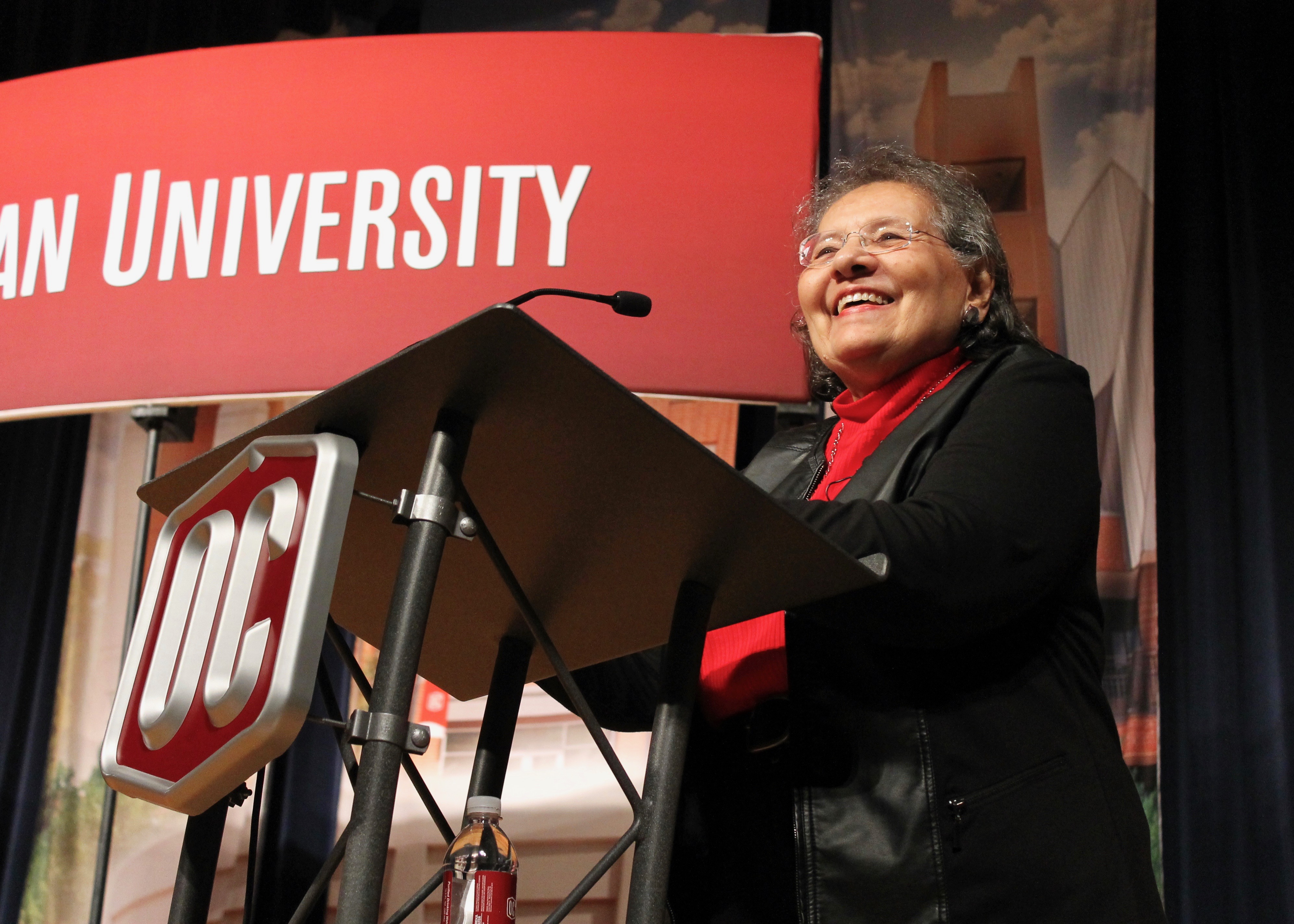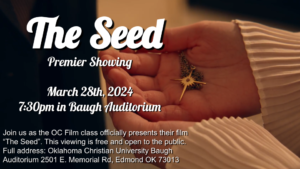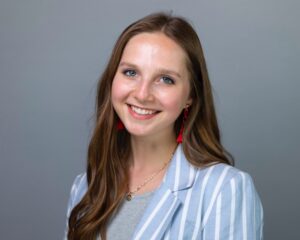History Speaks, an annual event for Oklahoma Christian University, focused on how a seemingly small concept can play a big part in society with last nights guest, civil rights activist Diane Nash.
History Speaks is an event welcoming members of the civil rights movement to share their personal story to the Oklahoma Christian campus and community.
In his introduction to the evening, Gary Jones, multicultural and service learning coordinator for Oklahoma Christian, said, “Nights like tonight are special. They aren’t granted to everybody. We’re able to tell a story. Tonight we have the privilege to talk about freedom riders and lunch counter sit-ins. You may never hear this information from any book or movie. There is nobody better to talk about it than Diane Nash.”
Nash, a native of Chicago, said she never experienced the divide of segregation until moving to Nashville, TN, to attend Fisk University in the fall of 1959.
“I felt outraged when I obeyed segregation rules,” Nash said. “It felt like I was agreeing to this way of public accommodations.”
Nash said food for African Americans was only on a take-out basis in Downtown Nashville.
“It was degrading and humiliating,” Nash said. “I started looking for an organization to do away with segregation. When I asked people, they would respond with, ‘Why are you trying to get involved, it will only get you in trouble,’ and they would tell me to just study and go to parties on the weekend.”
According to Nash, “agapic” energy, a term she made up meaning the energy or power produced by love of human kind, was her philosophy for dealing with the civil right movements in the 1960s.
“I was dissatisfied with the term ‘nonviolence’,” Nash said. “I needed more than a term for without violence. I wanted a more positive, comprehensive approach. I looked to Mahatmas Gandhi and his idea of energy produced by love, not by violence. It is easy to see the energy through violence in the killing or injuring of a person. Exerting violent energy upon the enemy is the common way of warfare.”
Nash said “agapic” energy is not passive, it’s active, and love energy helps teach, heal or at least cease perpetration of harm. She said it is not a perfect term, but still an improvement from the term “nonviolence.”
Nash first got involved with civil rights when she was elected to be the chairperson of the student sit-in movement in Nashville — the first southern city to desegregate its lunch counters. Nash was also the only female founding student for the Student Nonviolent Coordinating Committee.
“You can love and respect the person at the same time you attack the attitude or action of the person,” Nash said. “The problem with using violence to bring social change is you kill individuals and leave the oppressive system, which is the real problem, untouched.”
The SNCC gave younger African Americans the opportunity to have a voice in the civil rights movement. This group ended up playing a large part in the Freedom Rides, aimed at desegregating buses and in marches led by Dr. Martin Luther King Jr., according to History.com.
In 1961, Nash coordinated the Freedom Ride from Birmingham, AL, to Jackson, MS, which was recently featured in the PBS documentary, Freedom Riders.
Nash’s principles for “agapic” energy are: people are never the enemy and oppression always requires the cooperation of the oppressed.
“An oppressive system is a partnership between the oppressed and the oppressor,” Nash said. “In order for there to be segregated buses, it took blacks getting on the bus, paying the fee and sitting in their segregated section. Once blacks decided they no longer wanted to be on segregated buses, the system fell because when you change yourself the world has to change itself.”
Nash was also responsible for organizing student lunch counter sit-ins and the Selma march over the Edmond Pettus Bridge across the Alabama River.
“I have never fought a fight that I didn’t win,” Nash said. “The battles you don’t fight, you lose.”
In February 1961, Nash served jail time in solidarity with the “Rock Hill Nine” — nine students who were imprisoned after a lunch counter sit-in.
“Many of the owners of the restaurants were afraid if they served a black person at their lunch counters, they would be boycotted by white customers,” Nash said.
Nash said despite being afraid constantly, the courage and commitment of the people she worked with kept her going. She said they didn’t want to let each other down.
In 1962, Nash was sentenced to two years in prison for teaching nonviolent tactics to children in Jackson, MS, despite being four months pregnant at the time. She continued on to play a role in the Birmingham desegregation campaign of 1963 and the Selma Voting Rights Campaign of 1965.
“It was not Dr. Martin Luther King’s movement,” Nash said. “It was a people’s movement. We were trying to bring about the best society for you to be born into.”
Nash received an honorary degree from Fisk in 2009, as she had left the university to help with the SNCC in 1960.
“If you go along with the way thing have always been, they’re not going to change,” Nash said. “The 1960s provide us with a legacy we can use in 2017.”
Junior Abby Hubbard attended this year’s History Speaks, and said the center of Nash’s message was love.
“As humans, we attack those with views opposing our own,” Hubbard said. “She showed that love works better than violence.”
Hubbard said what struck her the most was how peaceful Nash was about everything she went through.
“She’s proud of everything she’s done,” Hubbard said. “She plays such an important role in our nation’s history. Standing on a stage at a small Oklahoma university and telling us to fight our battles with love that’s incredible to me.”















[…] natural storyteller, Nash offered the OC student body a fresh, compelling perspective on the Civil Right movement, including an explanation of the philosophy she calls agapic energy, […]